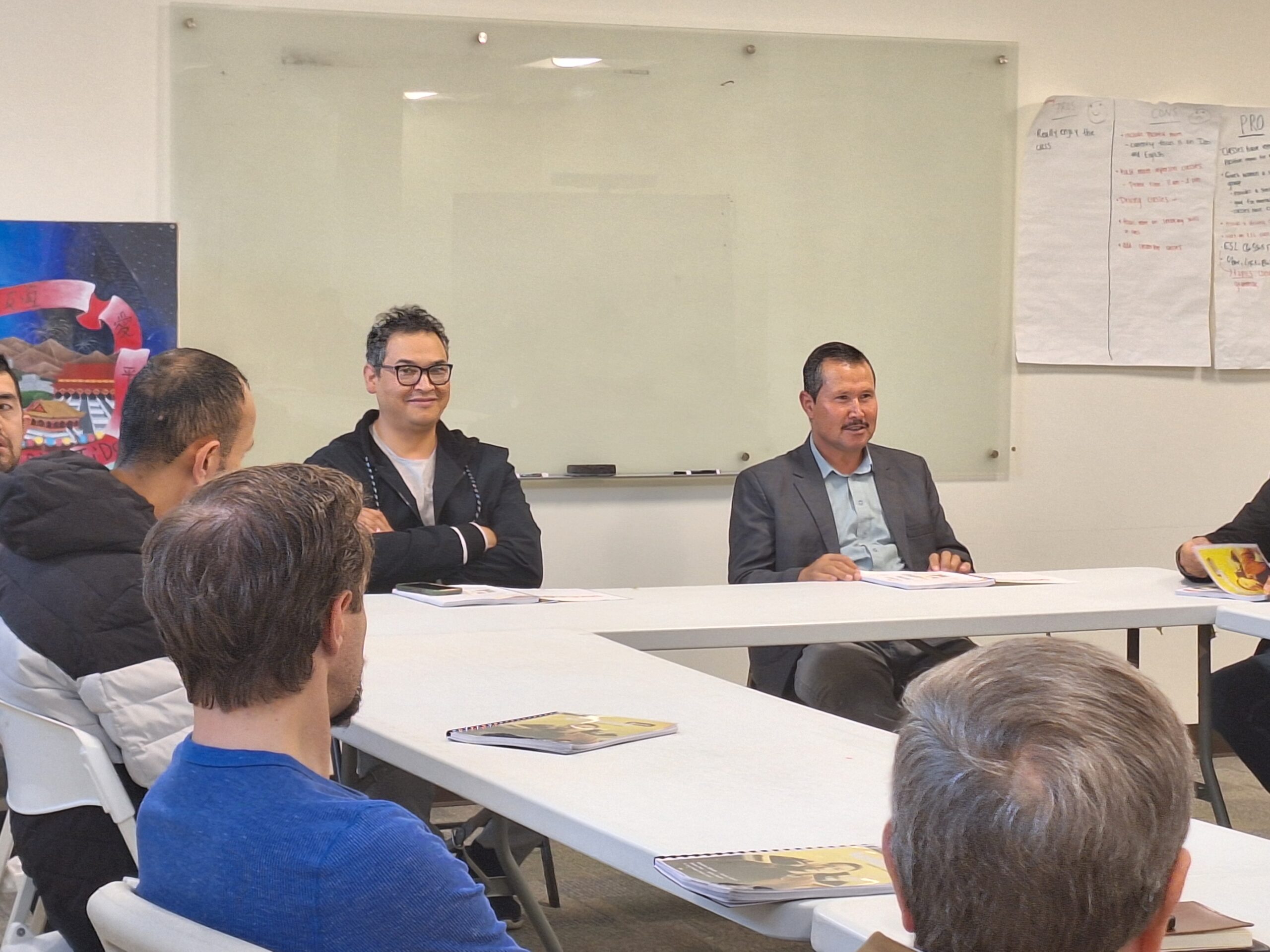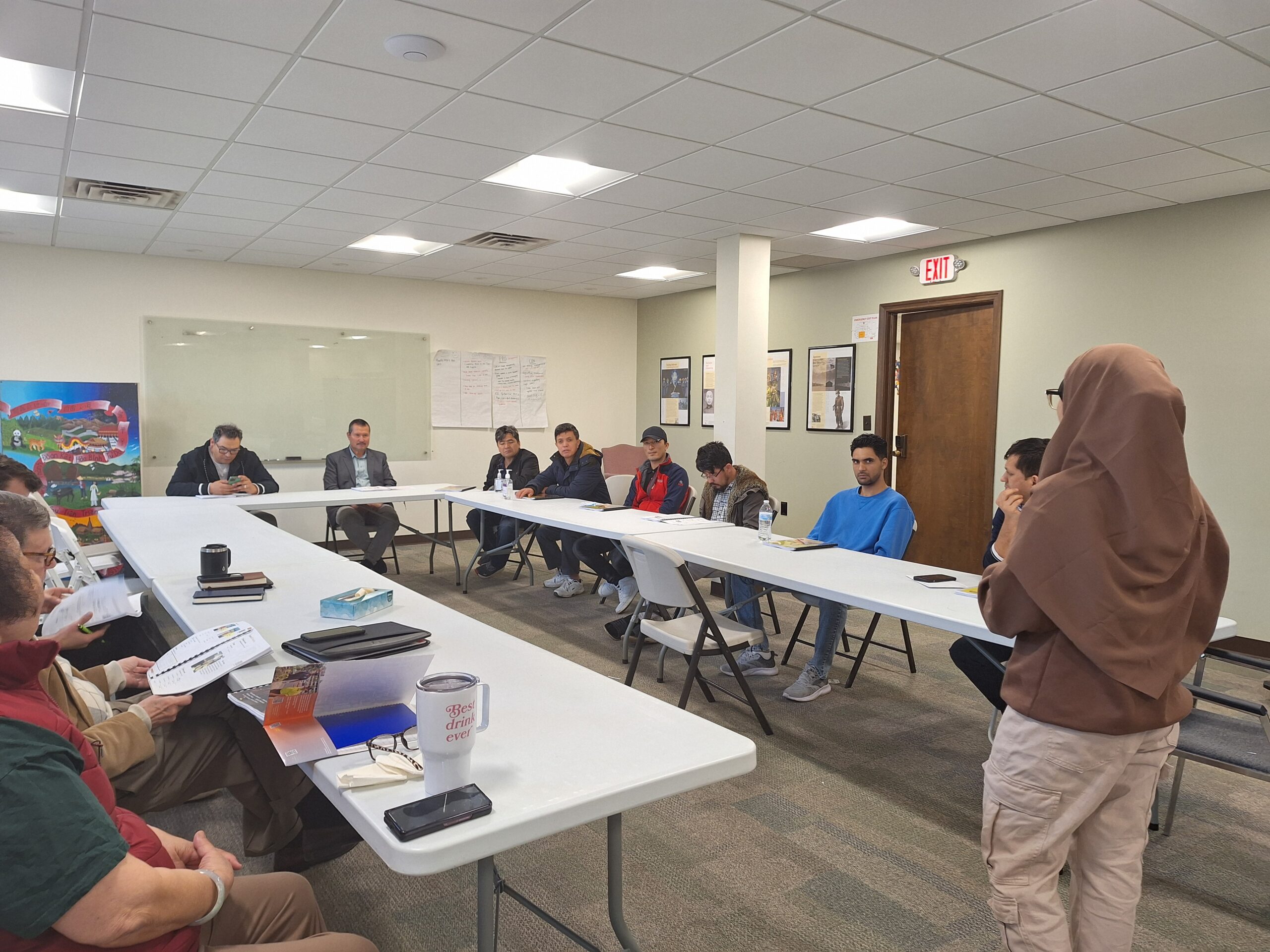
The men in the newly arrived Afghan community had a resounding request in September, three months after ASIA’s Women and Literacy classes began: they wanted ASIA to host a men’s English class.
They saw the improvement in English language abilities and confidence in their wives after attending weekly classes and were eager for a space where men could receive the resources and support to practice American English. When they shared that with ASIA’s community care lead, she and her team worked to build capacity and create a curriculum. After much anticipation, Men and Literacy launched on Friday, March 1 for the Akron community.
Ten Dari-speaking students arrived at ASIA’s Akron site to receive workbooks, learn how to use Zoom for online classes, and introduce themselves to ASIA’s staff and their classmates. May Chen, founder of Asian Services in Action, posed a question to the group: What has gone well for these men since arriving to the United States, and what has been challenging?
Each student was given the opportunity to share their stories with the class. The positives have centered on the peace and security of this new country—they are glad that their children and families are safe, the children are going to school, and they feel secure walking outside of their home in a way that they couldn’t back in Afghanistan because of the Taliban takeover.
The challenges reflected gaps in the current system. Two students reflected how they were diagnosed with many health issues upon arriving in the United States, some of which led to frequent hospital visits. The conditions are chronic conditions that they had back in Afghanistan but had not been diagnosed. “Since coming to the United States, we learned about all the sicknesses we actually have,” one student said half-jokingly. “We didn’t quite like that.”

Other prominent challenges include struggles with food insecurity and receiving benefits. Several students told the instructors that they had trouble accessing their food stamps and putting dinner on the table.
Our Care Community Lead quickly connected these students to ASIA’s Sustainability Services’ emergency food pantry and case workers, who could help review their applications for benefits. The literacy team also brought in team members from ASIA’s Children, Youth, and Family Services department to share about our after-school programs in their school district and to lead English instruction in the class.
Such is often the case with many of our clients: they connect with one of our departments for services, and through understanding their situation better and walking alongside them in their growth we learn about their other challenges. Refugees and new immigrants arrive to the United States to navigate an entirely new system and community, all the while figuring out how to put food on the table, dealing with trauma, and learning a new language. Juggling with multiple obstacles can feel isolating and overwhelming. ASIA’s ‘no wrong door’ policy alleviates the burden of searching for resources. There is no wrong way to ask for help.
The Afghan students are eager and diligent to learn. When asked to introduce themselves, many of them shared how they wanted to be a productive member in their new community. They were especially motivated when they heard that the students of Women and Literacy had already completed the first workbook. “We need to catch up!” they insisted, to which their instructor cheekily replied, “Then it looks like we need to study extra hard.”
Men and Literacy classes are now in session every Friday.
For more information about ASIA's literacy classes for the Afghan community, contact Lida at lida@asiaohio.org.


